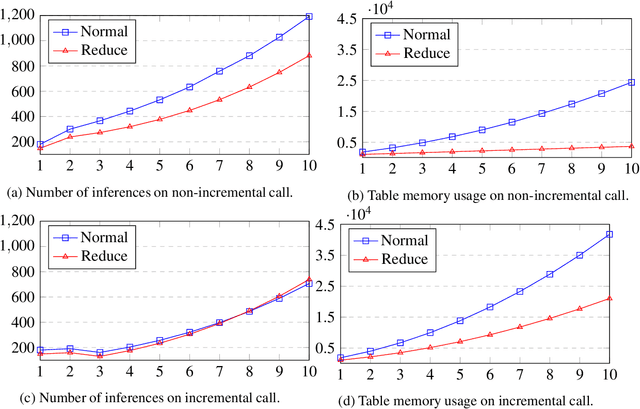Ari Saptawijaya
Tabling Optimization for Contextual Abduction
Sep 22, 2020



Abstract:Tabling for contextual abduction in logic programming has been introduced as a means to store previously obtained abductive solutions in one context to be reused in another context. This paper identifies a number of issues in the existing implementations of tabling in contextual abduction and aims to mitigate the issues. We propose a new program transformation for integrity constraints to deal with their proper application for filtering solutions while also reducing the table memory usage. We further optimize the table memory usage by selectively picking predicates to table and by pragmatically simplifying the representation of the problem. The evaluation of our proposed approach, on both artificial and real world problems, shows that they improve the scalability of tabled abduction compared to previous implementations.
* In Proceedings ICLP 2020, arXiv:2009.09158
Joint Tabling of Logic Program Abductions and Updates
May 08, 2014Abstract:Abductive logic programs offer a formalism to declaratively represent and reason about problems in a variety of areas: diagnosis, decision making, hypothetical reasoning, etc. On the other hand, logic program updates allow us to express knowledge changes, be they internal (or self) and external (or world) changes. Abductive logic programs and logic program updates thus naturally coexist in problems that are susceptible to hypothetical reasoning about change. Taking this as a motivation, in this paper we integrate abductive logic programs and logic program updates by jointly exploiting tabling features of logic programming. The integration is based on and benefits from the two implementation techniques we separately devised previously, viz., tabled abduction and incremental tabling for query-driven propagation of logic program updates. A prototype of the integrated system is implemented in XSB Prolog.
 Add to Chrome
Add to Chrome Add to Firefox
Add to Firefox Add to Edge
Add to Edge